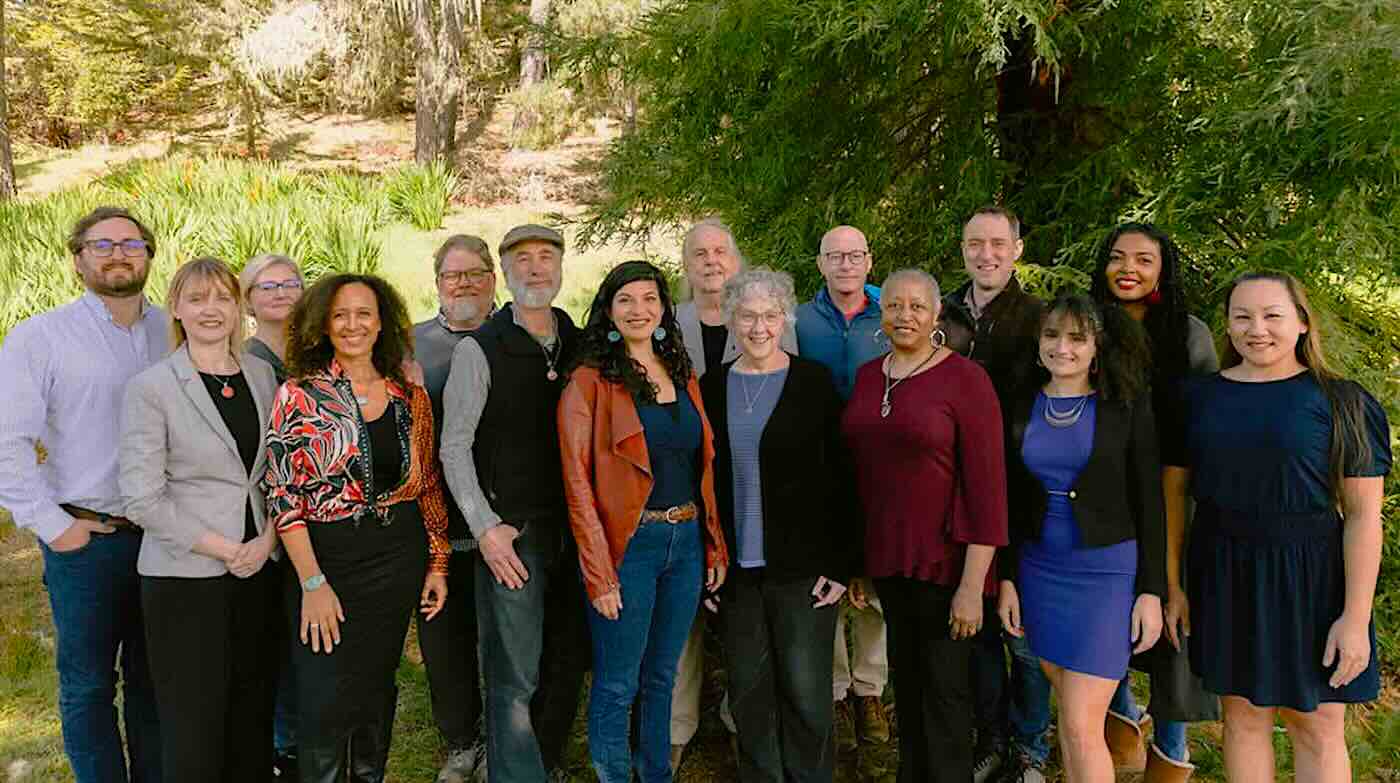Conversions to worker ownership can be complex for retiring business owners. They may be looking first to keep their enterprise going and second to share ownership with employees.
But a lucrative buyout is always attractive. And any requirement to extend a long-term seller’s note to finance the deal can be a real turnoff.
Financing structures like employee-led buyouts, or ELBOs, favored by funds like Apis & Heritage Capital Partners, and employee ownership trusts, or EOTs, championed by Common Trust seek to address the needs of both owners and employees – and compare favorably with private-equity alternatives.
“As a Black entrepreneur and business leader, I couldn’t be prouder to support economic mobility for all of our workers while preserving the legacy and growth of the business,” says Mowa Haile, founder of Sky Blue Builders, a Denver-based and Black-owned contractor and construction management firm.
Apis & Heritage is financing Sky Blue’s conversion to worker ownership, its fourth employee-led buyout, or ELBO, since 2021. More than half of Sky Blue’s 40 employees are women and people of color. Through an employee-led buyout, Apis & Heritage says worker-owners can retire with $70,000 to $120,000 in savings.
The Washington DC-based diverse-led investment firm financed the Sky Blue deal via its $58.1 million Legacy Fund, which unlocks liquidity for selling owners. Apis & Heritage secured debt financing from VectraBank Colorado which was made possible by the state of Colorado’s cash collateral program.
“In A&H, we have found the right partner to steward their livelihoods with care as we build a stronger, safer and more connected Colorado,” says Haile, who launch Sky Blue in 2007 as a two-man operation and now competes for large contracts for infrastructure projects with Fortune 500 companies, municipalities and government agencies, including in Denver.
In Colorado, Sky Blue has become an integral part of Denver’s transportation infrastructure, not least at Denver International Airport.
“This innovative company has done so much to help build Denver — now they are helping build wealth for their employees,” Denver Mayor Mike Johnston said in a statement.
Sky Blue is the second employee ownership deal Apis & Heritage has financed in Denver. In an earlier deal, the firm provided financing to convert Apex Plumbing, also formerly owned by Mowa Haile, to employee owned. “There is nothing more meaningful and powerful than having your team be the new owners of the company you founded,” said Haile.
The Colorado collateral program was created to drive employee ownership of small and mid-sized businesses in the state by bringing in third-party lenders to finance ownership-transition deals. It offers a cash deposit of up to $20 million for businesses without sufficient collateral to access loan capital.
Colorado “has made a real point of encouraging broad-based ownership,” Apis & Heritage’s Michael Brownrigg told ImpactAlpha. The state’s programs “help subsidize some of the extra costs that sellers have to go through to help banks feel comfortable jumping into the senior lending role of a leveraged ESOP (employee stock ownership plan) transaction.”
Employee ownership trusts
Employee ownership trusts are one of the fastest growing forms of employee ownership in the US, following the pattern of the UK. EOTs have been touted as inexpensive and flexible for owners considering employee ownership as an exit.
“I’ve searched for years for different options, from do-it-yourself employee ownership to ESOPs, and I never quite found the right thing,” Brad Hermann, who with Hai Nguyen is the majority owner of Texas-based telecommunications software company Text-em-all. “With EOTs, we were like, ‘that’s it!’”
The partners are transitioning ownership to its 42 employees via an employee ownership trust set up by Common Trust, which last year raised $2.6 million in seed funding to prove out the model (you read about Common Trust’s strategy last year, “Through ‘ownership trusts,’ investors can help employees become owners, and owners retire”).
Common Trust helped Text-em-all set up a trust that holds one out of 800,000 shares in perpetuity. The other 799,999 shares are bought back over time at an agreed upon price as the company generates cash.
“If we generate more cash, we buy more; we generate less cash, we buy less,” Hermann told ImpactAlpha. “Eventually we will whittle it down to where there’s just one share, so the company will never be sold.”
Common Trust helps businesses transition to employee ownership via an employee ownership trust, a kind of perpetual purpose trust that holds a majority of the voting shares of a company on behalf of employees, and includes a profit sharing mechanism and elements of worker governance.
“EOTs offer a unique opportunity for business owners to exit to their employees, protect key company values, and establish the business under a long-term ownership structure,” says Common Trust’s Zoe Schlag.
Hermann says he and his former co-owners had originally planned to transition at least 20% of the company’s ownership to employees via an ESOP, but abandoned the effort just before signing the papers. ESOPs can be expensive; yearly valuations required by federal regulations can cost, for example between $50,000 to $100,000.
Hermann said Text-em-all spent more than $200,000 on the ESOP, “and we didn’t even go through with it.” All in, the company spent $84,000 on the trust structure “and we have minimal expenses going forward with it.”
Competitive advantage
Business owners who have chosen employee ownership trusts as a buyout strategy say they have seen greater talent retention, employee buy-in, increased profits, and resilience against macroeconomic challenges.
“Business owners across the country are turning to EOTs not just as an exit strategy, but as a key competitive advantage for the next phase of company growth,” Schlag told ImpactAlpha.
Common Trust late last month privately convened business owners who have transitioned ownership to their employees via an EOT.
Among them: Rick Plympton of Optimax Systems, a New York based optics manufacturer who is projected to generate billions of dollars in wealth for over 400 employees. In Utah, Kevin Clegg’s Clegg Auto has doubled its profits since it transitioned to employee-owned (see “A Utah auto shop demonstrates a pathway to worker ownership via a perpetual purpose trust”).
Schlag will present those findings at this week’s Employee Ownership Ideas Forum, hosted by Aspen Institute and Rutgers’ Institute for the Study of Employee Ownership and Profit Sharing. She will join a panel, “New frontiers in employee ownership finance,” alongside Apis & Heritage’s Phil Reeves, Amy Brakeman of the Unlock Ownership Fund and Sorenson Impact’s Jim Sorenson.
The forum, in Washington, DC and online, will convene members of Congress, including Sens. Bernie Sanders and Chris Van Hollen. Van Hollen and Republican Sen. Marco Rubio in May last year introduced the Employee Equity Investment Act to create Employee Equity Investment Companies to finance ESOP conversions.
Canada has created a framework for employee ownership trusts with incentives for companies to transfer ownership to workers (see, “With employee trusts, Canada opens a pathway to worker ownership”).











